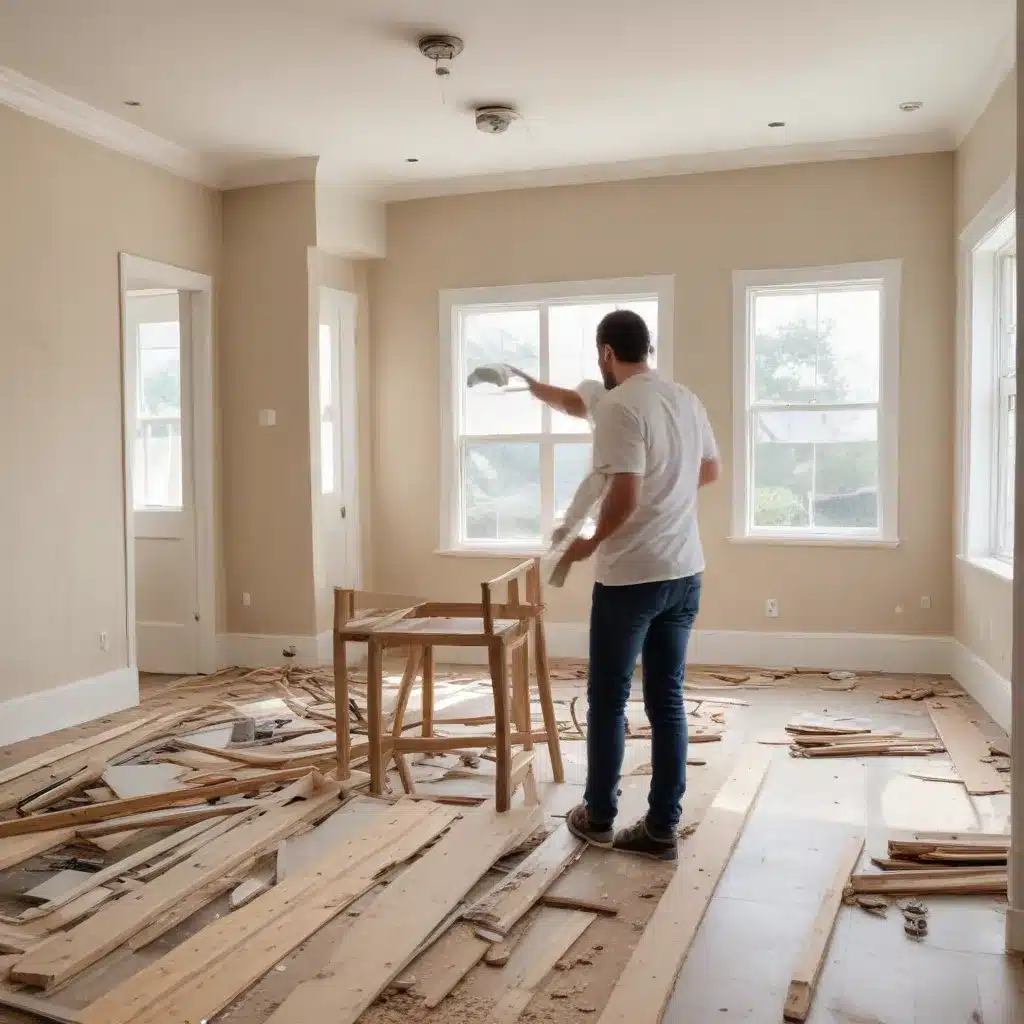Embarking on a whole-house renovation can be an exhilarating yet exhausting endeavor. As an experienced home improvement consultant, I’ve seen firsthand how the chaos of construction, financial considerations, and family dynamics can easily overwhelm even the most organized homeowners. However, with the right mindset, planning, and strategies, you can navigate this renovation journey with your sanity intact.
Budgeting and Financial Considerations
One of the primary sources of stress during a renovation is often the financial aspect. It’s crucial to establish a realistic budget from the outset and factor in unexpected costs. Begin by thoroughly researching material and labor expenses, and leave a generous buffer for surprises, such as encountering asbestos or needing to address underlying structural issues.
Maintaining open communication with your contractors is key. Discuss payment schedules, change orders, and any budget overruns as they arise. Prioritize cost-saving measures, such as sourcing eco-friendly materials or exploring DIY opportunities for certain tasks. By staying proactive with your finances, you can minimize the strain on your wallet and your peace of mind.
Communicating with Contractors
Effective communication with your renovation team is paramount to a successful project. Establish clear expectations and a detailed timeline from the start, leaving room for flexibility. Encourage your contractors to provide regular updates, and don’t hesitate to ask questions or voice concerns. A collaborative partnership can go a long way in preventing misunderstandings and ensuring the work aligns with your vision.
Remember, your contractors are professionals, but they’re also human. Approach them with empathy and appreciation, and you may find they’re more inclined to go the extra mile for you. Maintain a positive attitude, even when faced with inevitable setbacks – a little kindness can go a long way in keeping morale high.
Managing Temporary Living Arrangements
If your renovation encompasses the entire home, you may need to consider alternative living arrangements during the construction phase. Evaluate the scope of the project and determine whether it’s feasible to remain in the house or if a temporary move is advisable.
If you choose to stay, create a designated “sanctuary” space within your home, away from the construction area. This could be a bedroom, a quiet corner of the living room, or even a well-organized section of the garage. Equip this space with comforts like Feliway diffusers and noise-cancelling headphones to help you and your family maintain a sense of calm.
Alternatively, exploring short-term rentals, staying with friends or family, or utilizing extended-stay hotels can provide a haven during the renovation. While this option may come with additional expenses, it can significantly reduce the disruption to your daily life and minimize renovation fatigue.
Maintaining a Healthy Mindset
Renovating a home, especially an entire house, can be an emotional rollercoaster. It’s crucial to prioritize your mental well-being throughout the process. Adopt stress management techniques, such as meditation, regular exercise, or simply setting aside time for yourself each day.
Preserving your daily routines and self-care habits can also go a long way in maintaining your sanity. Carve out time for activities that nourish you, whether it’s a weekly yoga class, reading a book, or enjoying a leisurely meal with loved ones. Fostering family harmony by involving your household in the decision-making process and setting reasonable expectations can also alleviate the overall stress.
Remember, it’s perfectly normal to feel overwhelmed at times. When you find yourself in a rut, don’t hesitate to reach out to friends, family, or even a therapist for support. Talking through your feelings can provide much-needed perspective and help you regain your footing.
Optimizing the Renovation Process
Effective planning and organization can go a long way in ensuring a smoother renovation journey. Establish clear priorities from the outset, determining which projects are must-haves and which can be tackled as time and budget allow. This will help you maintain focus and make more informed decisions when unexpected challenges arise.
Develop a comprehensive project plan, outlining the sequence of tasks, timelines, and responsible parties. Regularly review and update this plan to stay on top of any changes or delays. Be prepared to adapt and problem-solve as needed, embracing a flexible mindset that allows you to pivot when necessary.
Leverage online resources, home improvement communities, and the expertise of your renovation team to stay informed about the latest trends, techniques, and eco-friendly solutions. This knowledge can empower you to make more confident decisions and potentially uncover innovative ways to enhance your project.
Creating a Smooth Transition
As the renovation nears completion, shift your focus to minimizing disruptions and ensuring a seamless transition back into your newly transformed home. Anticipate potential challenges, such as the need for a deep clean or the integration of new furnishings and appliances, and plan accordingly.
Celebrate the milestones along the way, whether it’s the completion of a major project or the moment you step back and admire your hard work. These small victories can provide a much-needed morale boost and remind you of the ultimate rewards of your renovation journey.
Remember, the road to a dream home is not always smooth, but by maintaining a positive attitude, embracing flexibility, and prioritizing your well-being, you can navigate the renovation process with your sanity intact. With careful planning and a supportive team, you’ll be well on your way to creating the beautiful, functional space you envisioned. For more renovation tips and inspiration, be sure to visit Reluctant Renovator.




